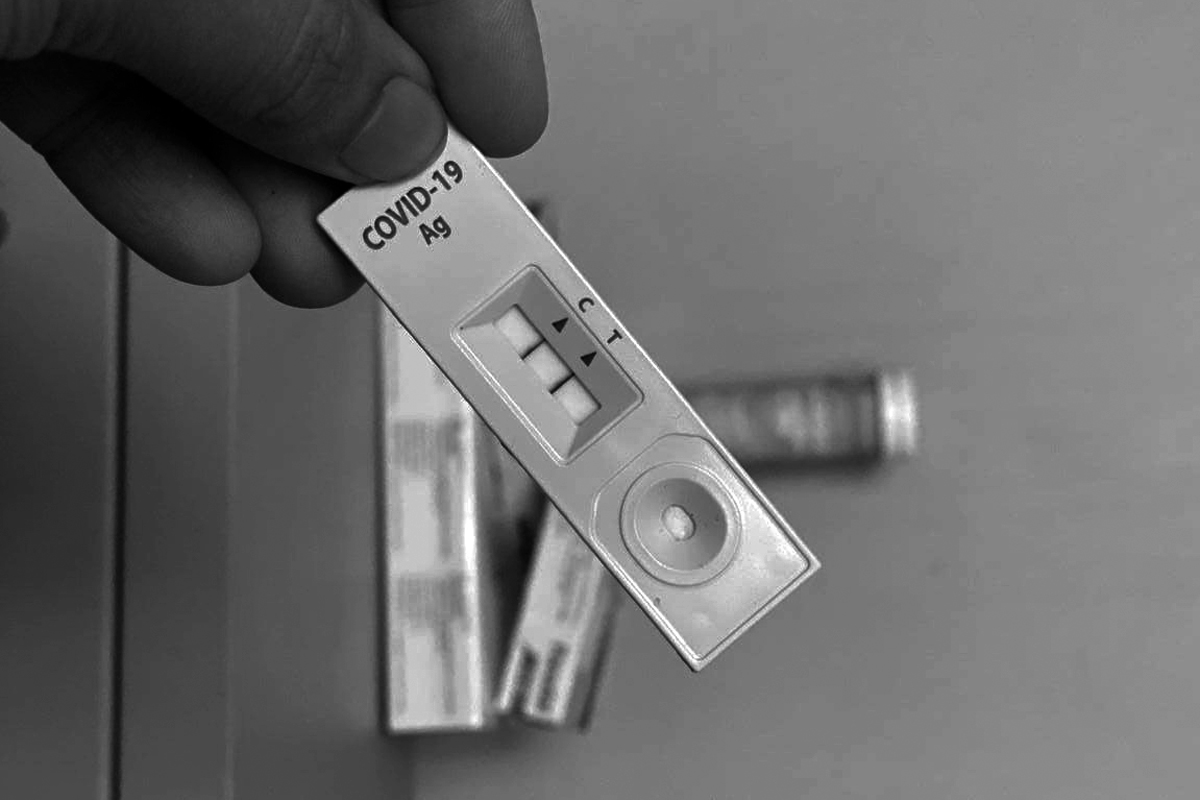Top image: Iandanmari
The inevitable has happened. Three people in my close friend group of five caught Omicron. The days of fretting and wondering when Covid would descend upon our group are now over. “It’s simply a matter of time before we get infected,” I used to remind everyone. Especially when we’re not, by any measure of the imagination, the type to sequester ourselves at home—no sir. We’re out and about, having dinner, playing VR games, visiting each other’s homes, having a CNY steamboat, and sharing drinks.
Yet still, I’m testing negative. It’s been five days since we the positive and, even with such a close brush to the virus, I felt little to no sense of dread. Neither did my friends who promptly laughed it off, prepared themselves for quarantine, stocked up on Paracetamols, dragged themselves to the nearest QTC (Quick Test Centre) to officially register their positive result, and took each day as it came. No theatrics, no bouts of ‘Woe is me’—just a peaceful resignation that they have to get through this for the next seven days.
This is in stark contrast to another group of friends who, when they found out I’ve been a close contact, promptly asked me to stay the hell away, hands flailing, voices raised, deathly afraid that they’re next in line to be infected. Such terse reactions are more congruent with sentiments on the ground and online, in Telegram channels such as the almost 18,000 strong SG Quarantine Order Support Group, where no query is too insignificant and no question too foolish.
Still, in looking at the inherent banality of some of the questions asked, I wonder if perhaps the reason why we’re not moving quickly enough to a state of endemicity—and by this, I mean living in harmony with the virus, come what may—is because we, the residents of Singapore are instrumental in holding back that progress. The questions run the gamut from “Did not receive SMS for close contact to get ART. Is this the norm now?” to “Is it normal when day 5. 2 lines still dark at T?”. Like I said—banal.
Let’s look at the hard numbers. As of 4th March, 91% of the total population ages between 5 to 80 years old are fully vaccinated. 68% have received their booster shots, and out of 820,000 cumulative cases, Singapore has reported 1,073 deaths—that’s 0.1% of total case numbers.
Naysayers will say I’m missing some crucial numbers—they’re not wrong. When it comes to Covid-19 statistics, what the media chooses to report is often an exercise in selectivity since there’s no possible way to report every single figure available. Still, when it comes to the basic numbers, the situation seems less dire than some alarmists make it out to be. And from observation, it’s probably a stance the government agrees with as well.
One need not look far to see this position unfolding. When it comes to reporting on being Covid-19 positive, much of what the government tells us to do falls more along the lines of social responsibility than institutional scrutiny. The verbiage used leans towards appealing to our better nature—stay home if you’re unwell, monitor your health after 72 hours of close contact, recover at home, don’t come to the clinic, you don’t have to register your positive test if you don’t want to, and no, employers aren’t allowed to demand an MC if you test positive or a recovery memo when you’re fit to work.
It’s all very low on surveillance and even more lax on hard and fast rules. Some would argue that it’s just poor planning on MOH’s side, but I reckon it’s a strong signal from the ministries that, moving forward, we need to learn how to manage.
That’s not to say that everything has been executed perfectly. For one, MOH could go even harder on the various protocol measures so that the public would know that it’s perfectly okay to go out of the house and rejoin society seven days after you first tested positive. People are freaking out on TikTok when Covid positive patients film themselves out and about after seven days in isolation. “You’re still positive! Why you go out? So irresponsible!” they cry. These people are, of course, wrong. Studies have shown that the virus becomes less contagious after seven days. Of course, you’re free to isolate yourself until the ART test shows you’re negative. Some of us choose to believe in science.
And then there’s the Safe Measures Management that is, in a word, performative. The whole song and dance of checking into malls and most public places make little sense, given that a mere 8% of the population is unvaccinated. The TraceTogether app has also stopped letting us know in-app when we have had close covid-19 contact. This, coupled with the fact that extensive contact tracing longer makes sense and that many of us don’t even bother checking out of a venue, makes the whole checking in and out feel entirely token.
Recently, Ms Amy Khor announced more Vaccination Differentiation measures at Hawker centres and coffee shops that are time-bound. I refuse to get into the specificities of those because option number three has the potential of being a colossal, ugly mess. The ministries can also instruct mainstream media to stop reporting daily case numbers. These get circulated faster than most can imagine and often serve only to drum up fear without much understanding of what the numbers mean.
The public has an even more prominent role in the eco-system of moving towards endemicity. If the government takes its cue from the citizenry, it’s small wonder why they caution against opening up too fast. We need to do better. We can start by not overreacting when we come into contact or know someone who recently tested positive. It’s not a death sentence—no one needs to feel like a leper.
We also need to stop policing mask-wearing. If logic is to be believed, no one wants to catch Covid, so if you see someone on TikTok taking a group photo, trust that precautions have been taken. No one needs your virtue signalling and policing complete strangers online to wear a mask. Additionally, it helps significantly if we stop fretting over total case numbers and letting those digits sway our sensibilities. Numbers should not have that much power.
Yes, Covid-19 is terrible, and we should, as much as possible, strive not to catch it in this lifetime. But going by statistics, that seems almost a Sisyphean task. As the nation opens up and we find ourselves in mask-off environments for longer, it is inevitable that we catch it. And if we do, we’re not ill-prepared. We know what to do. We know where to go. We know when to isolate. And if things go south, we know if the situation is serious enough to call for a visit to a hospital. Otherwise, we stay home, recuperate, and get better.
We cannot let this virus take over our better nature. We cannot be paralysed with fear that we forget to live. There’s a lot of the world we’ve missed in the past two years. Staying holed up in your room, cloaked in fear and negativity, is not going to change what is happening beyond the safety of these four walls. That, for me, is the only obstacle to true endemicity.



